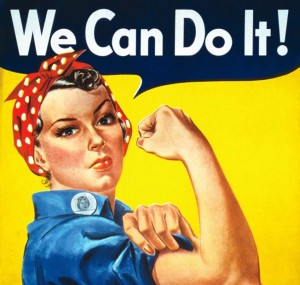Written by Sumithri Venketasubramanian, Change Maker
 If you have been following the coverage on Singapore’s General Elections this year, you’ll find that some things don’t sit well, if at all, on the spectrum of gender equality.
If you have been following the coverage on Singapore’s General Elections this year, you’ll find that some things don’t sit well, if at all, on the spectrum of gender equality.
For one, the visibility of women as leaders is low in most fields, and politics is no exception. Some might wonder why it’s important to have gender representation – men can take into account women’s views, can’t they? Sure, but not with as much detail and understanding, because they haven’t had the same experiences.
The concerns with regard to issues that tend to affect women more (such as caregiving, single-parent families, and job security) can only be comprehensively addressed if women themselves are able to make those decisions, because they’ll be able to relate to and critically analyse the situation in accordance to their own experiences and views. Women’s voice in parliament should come from, well, women.
Representation of women in politics
Unfortunately, the way that we talk about women who do get into politics does no justice to their effort and service. You may be familiar with the recent incident where National Solidarity Party candidate for MacPherson Single-Member Constituency, Mr Cheo Chai Chen, claimed that People’s Action Party rival, Ms Tin Pei Ling’s motherhood was a “weakness”. Comments like this sends the message that politics is not for mothers, or women at all for that matter.
Female candidates and members of parliament are constantly under scrutiny by the media for matters that have nothing to do with their contributions to Singaporean politics. They’re asked why they’re not married, and if they have any plans to do so. Their family-work balance is questioned significantly more than their male counterparts. They’re seen as mothers, daughters, sisters who happen to be politicians, rather than politicians who happen to be women.
 This treatment of women in the media isn’t exclusive to the field of politics. We see it everywhere, from an established businesswoman (who’s also in politics) being introduced as a “mother-of-two” to sportswomen’s “wardrobe malfunctions” being broadcast to the world in a matter of seconds after they happen. These subtly sexist questions directed at female politicians imply that politics is not for women, unless they want to be questioned about their previous “unprofessional” jobs and/or actions, appearance and personal choices. This unhealthy obsession which the media seems to have only builds on gender roles and stereotypes that we’re hoping to rid our society of.
This treatment of women in the media isn’t exclusive to the field of politics. We see it everywhere, from an established businesswoman (who’s also in politics) being introduced as a “mother-of-two” to sportswomen’s “wardrobe malfunctions” being broadcast to the world in a matter of seconds after they happen. These subtly sexist questions directed at female politicians imply that politics is not for women, unless they want to be questioned about their previous “unprofessional” jobs and/or actions, appearance and personal choices. This unhealthy obsession which the media seems to have only builds on gender roles and stereotypes that we’re hoping to rid our society of.
Politicians are public figures. When international conferences are held, they represent our people. When problems arise, they’re the ones who come forward in an effort to help the situation. When Singaporeans think of national leaders, they see them. By having such few women in the government and within political parties, it sends the message that politics is a men’s game and only a few lucky women might have the opportunity to play too. It propagates the notion of women having to behave “like men” in order to succeed. It says that men are the ultimate decision makers on the national scale, and women only have a small role in such an important task. It tells young girls that their brothers and male friends probably have a higher chance of being leaders in the future. (And it doesn’t really help that women – already rare in the political realm – are pitted against one another, courtesy of the media.)
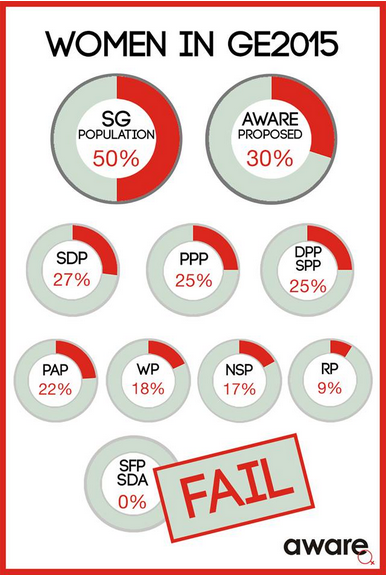 What changes do we want to see?
What changes do we want to see?
So, politics definitely needs a feminist overhaul. There needs to be significantly more effort on the part of political parties to include women among their candidates – AWARE recommends at least 30% of candidates to be women, for a start. Currently, the closest any party has come to this is the Singapore Democratic Party, at 27%. Some parties (ahem, the Singapore Democratic Alliance and the Singaporeans First Party) don’t even have any women among them. Some complain that there’s something of a “gender quota” – bordering on tokenism – when candidates are picked, but as mentioned, it is an important measure to give women their voice in parliament – at least until greater gender equality is seen in politics. (Image source)
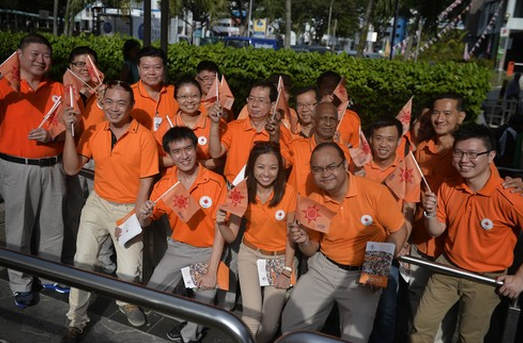 The media, which greatly influences the way that people are perceived, should play their part and actively shift the conversation away from unrelated matters back to the equally-exciting game that these women are playing: politics. There is so much that women have to offer in politics; perspectives that may have never been considered will start getting recognised in parliament and by the public, potentially changing the political atmosphere of Singapore. And seeing as newspapers, television and online news websites provide coverage of politics and news, they’re instrumental in making a difference in the way that female politicians – and women’s issues – are perceived.
The media, which greatly influences the way that people are perceived, should play their part and actively shift the conversation away from unrelated matters back to the equally-exciting game that these women are playing: politics. There is so much that women have to offer in politics; perspectives that may have never been considered will start getting recognised in parliament and by the public, potentially changing the political atmosphere of Singapore. And seeing as newspapers, television and online news websites provide coverage of politics and news, they’re instrumental in making a difference in the way that female politicians – and women’s issues – are perceived.
Women in Singapore politics have come a long way from being practically non-existent decades ago, but there’s still a lot of room for improvement.
About the Author: Sumithri is a passive-aggressive activist who enjoys writing lengthy blog posts on some of the many issues faced in the world. She’s still trying to figure out which of the many social injustices to dedicate her life fighting against, but whatever it is, will contribute the best she can.
 Catch-ups with your National Service buddies, soccer hang-outs, or just drinks with guys you like to hang out with – these traditionally “boys-only” spaces provide a lot of potential for allies to interrupt sexism should it arise.
Catch-ups with your National Service buddies, soccer hang-outs, or just drinks with guys you like to hang out with – these traditionally “boys-only” spaces provide a lot of potential for allies to interrupt sexism should it arise. People aren’t always going to pat us on the back for speaking up. In order to spark real change, men need to be okay with starting conversations that nobody wants to have, and dealing with discomfort. You need to listen keenly to women’s experiences and take them seriously. Read about and follow broader discussions on gender issues that are happening now. Learning requires humility and willingness to unlearn male privilege. Speaking up is taking a risk. Are you ready for it?
People aren’t always going to pat us on the back for speaking up. In order to spark real change, men need to be okay with starting conversations that nobody wants to have, and dealing with discomfort. You need to listen keenly to women’s experiences and take them seriously. Read about and follow broader discussions on gender issues that are happening now. Learning requires humility and willingness to unlearn male privilege. Speaking up is taking a risk. Are you ready for it? Think about the communities you are already a part of and how you can make a difference there. In specific, think of the spaces where you have leadership and a strong voice. This might be at home, on an online space, in an interest group or a work team. For example, if an organising team you are in wants to invite a group of experts for a panel discussion, what are the factors you would consider? Is there equal representation of men and women on the panel? Are there people dominating the conversations and decision-making processes? How much of a role do women play in organising and participating? How major are these roles and how much are women acknowledged or credited for them?
Think about the communities you are already a part of and how you can make a difference there. In specific, think of the spaces where you have leadership and a strong voice. This might be at home, on an online space, in an interest group or a work team. For example, if an organising team you are in wants to invite a group of experts for a panel discussion, what are the factors you would consider? Is there equal representation of men and women on the panel? Are there people dominating the conversations and decision-making processes? How much of a role do women play in organising and participating? How major are these roles and how much are women acknowledged or credited for them?
 Retweeting this is close to writing the tweet. I barely know you, but I can tell from your tweets that you think this is funny, and it’s just a joke. To a tiny extent, it is. But that doesn’t make it harmless. The fact that you retweeted it allows your followers to see that you, an acquaintance of theirs, agree with its contents. This is no longer an “American thing”, nor is it that far off from their reality, because there you are, their classmate, their friend from church, or their neighbour, agreeing that girls are annoying and it’s terrible to be one. Suddenly, the tweet is no longer just hers. It is also yours. You have endorsed it and what it stands for.
Retweeting this is close to writing the tweet. I barely know you, but I can tell from your tweets that you think this is funny, and it’s just a joke. To a tiny extent, it is. But that doesn’t make it harmless. The fact that you retweeted it allows your followers to see that you, an acquaintance of theirs, agree with its contents. This is no longer an “American thing”, nor is it that far off from their reality, because there you are, their classmate, their friend from church, or their neighbour, agreeing that girls are annoying and it’s terrible to be one. Suddenly, the tweet is no longer just hers. It is also yours. You have endorsed it and what it stands for.

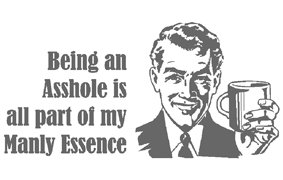

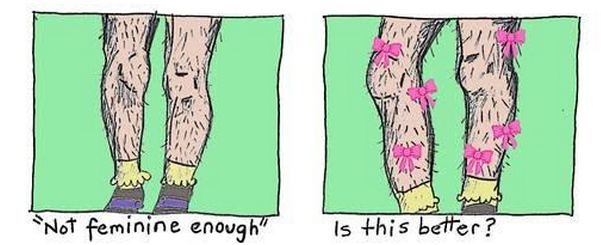

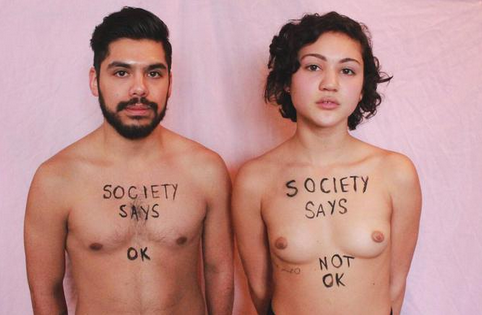







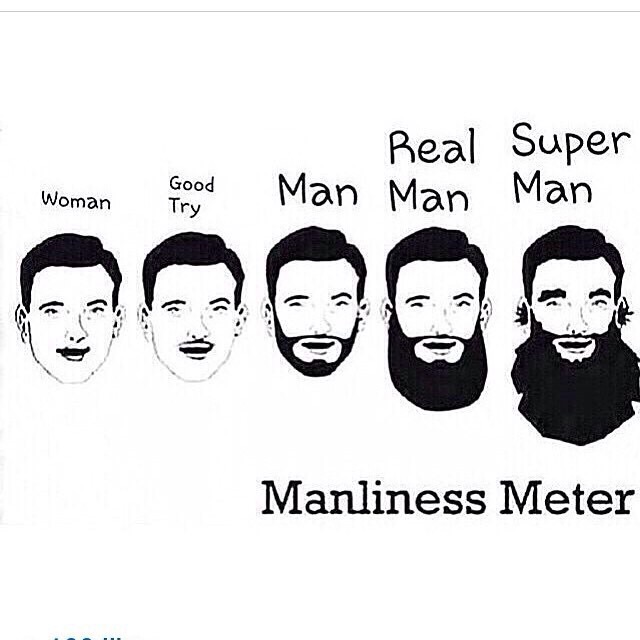



 At the risk of simplifying the issue, I would appeal to the users of the “TATRP” argument to stop. By using victims of violence to silence feminists, you are using real people, with real experiences and emotions as a tool, an object to get your way. They may not directly experience your flippant cruelty, but it shuts down any form of viable discussion with members of your own society. I understand that it may not have been your intent, but I would ask that you hesitate before you adopt a “TATRP” tone; devaluing one’s struggles does not help alleviate the other.
At the risk of simplifying the issue, I would appeal to the users of the “TATRP” argument to stop. By using victims of violence to silence feminists, you are using real people, with real experiences and emotions as a tool, an object to get your way. They may not directly experience your flippant cruelty, but it shuts down any form of viable discussion with members of your own society. I understand that it may not have been your intent, but I would ask that you hesitate before you adopt a “TATRP” tone; devaluing one’s struggles does not help alleviate the other.
 Why is such a forum allowed to exist? A forum where women are nothing but sexual objects to satisfy the fetishes of the users. A forum where women are trophies and prizes in the eyes of those users.
Why is such a forum allowed to exist? A forum where women are nothing but sexual objects to satisfy the fetishes of the users. A forum where women are trophies and prizes in the eyes of those users.
